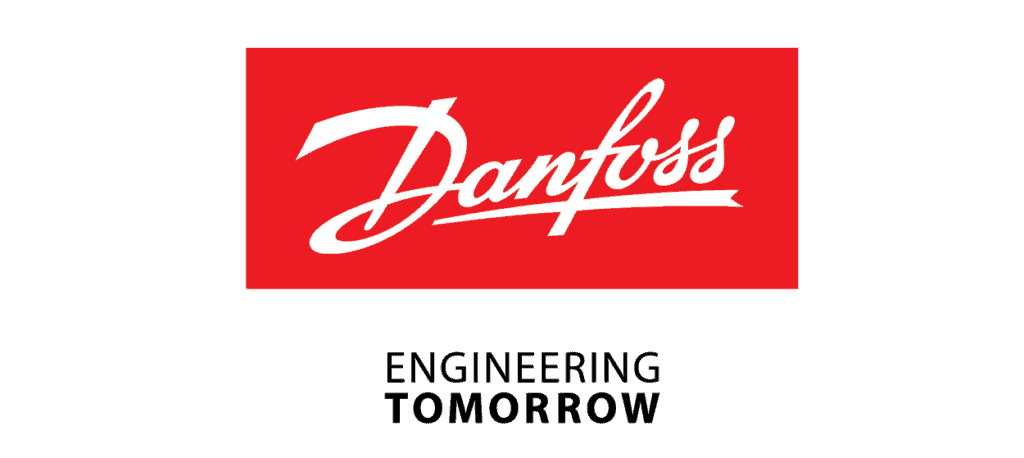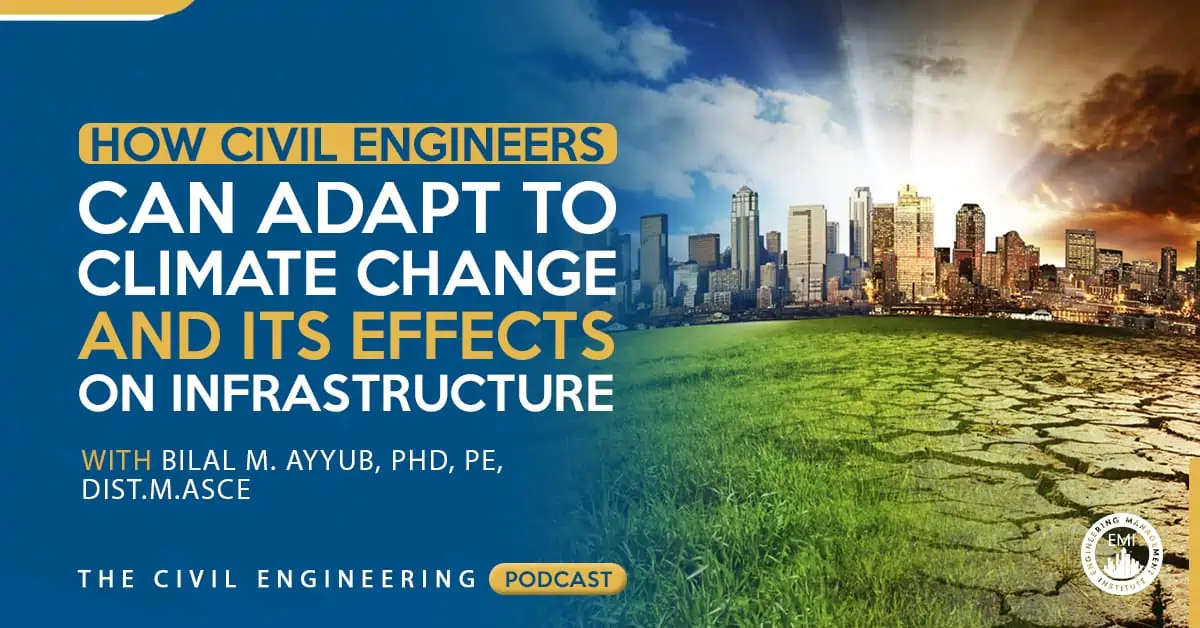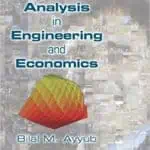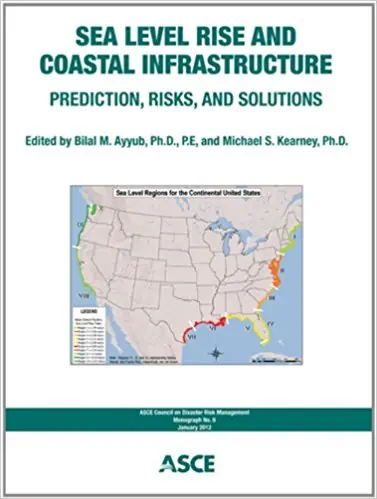Podcast: Play in new window | Download | Embed
In episode 87 of The Civil Engineering Podcast, which is the second episode of our 5 episode Infrastructure Series, I talk with Professor Bilal M. Ayyub, PhD, PE, Dist.M.ASCE from the University of Maryland about how civil engineers can adapt to climate change and its effects on infrastructure.
Engineering Quotes:
Here are some of the questions I ask Professor Bilal:
- Tell us more about risk mitigation in general.
- How will you assess an existing piece of infrastructure against potential climate change concerns?
- Does the government assess certain points of existing infrastructure that are more susceptible to climate change than others?
- How do you analyze the risk associated with something as variable as climate change?
- How can civil engineers move towards more climate-resilient designs?
Here are some key points discussed on climate change and its effects on infrastructure:
- When we examine the risk for systems, we try to answer the following questions:
- What can go wrong and what are the scenarios and the conditions in which the system will not perform?
- What are the consequences and the impact of such failures?
- And what can be done about it?
- An integral part of risk assessment is economic analysis in order to determine what should be done.
- Having separation between existing and new infrastructure is integral in assessing infrastructure against potential climate change. When it comes to existing infrastructure, the options will be limited compared to a new design. For existing infrastructure, the logical option would be implementing protection and perhaps making changes in the use of the infrastructure.
- The government does have several options that they are exploring for mitigating the risk of climate change.
- There is a design philosophy which is emerging and is referred to as adaptive design. Adaptive design will enable us to change, or add to parts of the infrastructure design without re-doing the whole design.
- Through variability we introduce adequate margins of safety to ensure that the risk is at an acceptable level. The past is not a force of data for projecting the future. Although we have to utilize information from the past, we also have to rely on climate data to give us the projection and interaction among the different variables. When we find in the future that what we assume is not totally accurate, we have to adapt our designs.
- The US Governance places slightly more than $1,000,000,000,000 (as per 2017) towards infrastructure assistance per year.
- We have to move and be ahead of the crowd, and also add value, for then success will follow.
More details in this episode…
About Bilal M. Ayyub, PhD, PE, Dist.M.ASCE
Dr. Ayyub is a University of Maryland Professor of Civil and Environmental Engineering. His main research interests are risk, uncertainty, decisions, and systems applied to civil, mechanical, infrastructure, energy, defense and maritime fields. Dr. Ayyub is a distinguished member of ASCE, and a fellow of the Society for Risk Analysis, Structural Engineering Institute, ASME, and the Society of Naval Architects and Marine Engineers. He has authored and co-authored more than 600 publications including 8 textbooks and 14 edited books. He is also the Editor-in-Chief of the ASCE-ASME Journal of Risk and Uncertainty in Engineering Systems.
Sources/References:
Engineering Management Accelerator Workshop (Online) | 5 PDHs
Prediction and Impact of Sea Level Rise on Properties and Infrastructure of Washington, DC
ENR’s Top 25 Newsmakers 2017
This episode is brought to you by RedVector. The team at RedVector believes knowledge is the most powerful tool available for helping people enrich their lives and meet their professional goals. To find out more about RedVector continuing education, visit www.RedVector.com.
This episode is also brought to you by Danfoss. Smart energy systems, e
Books Mentioned in this Episode:
Risk Analysis in Engineering and Economics, Second Edition
Please leave your comments or questions in the section below on adapting to climate change.
To your success,
Anthony Fasano, PE, LEED AP
Engineering Management Institute
Author of Engineer Your Own Success










